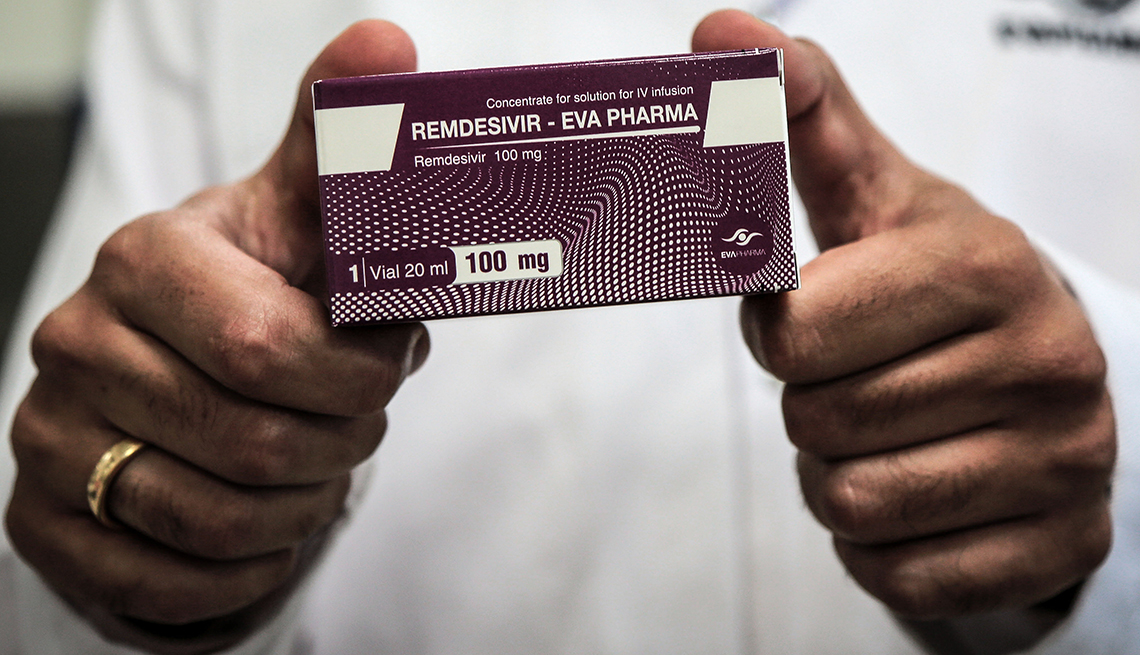AARP Hearing Center
As the world eagerly awaits the distribution of coronavirus vaccines, researchers and agencies like the National Institutes of Health (NIH) continue to evaluate potential COVID-19 treatments, including the use of antiviral drugs, corticosteroids and antibody therapies.
So far, the U.S. Food and Drug Administration (FDA) has approved just one treatment — the antiviral drug remdesivir — for patients hospitalized with COVID-19. Other treatments, such as Regeneron's monoclonal antibody cocktail, have been granted emergency use authorizations (EUA) by the agency, which allow them to be used while more research is gathered on their efficacy and effects.
Advancements in our understanding of COVID-19 have also improved treatment outcomes. “We know so much more now than we did in March or April,” says Gopi Patel, M.D., associate professor of infectious diseases in the department of medicine at the Mount Sinai Hospital in New York City.
Two main processes are now thought to drive the progression of the disease: First, the virus replicates in lung cells, causing respiratory symptoms and others, like fever. This is followed in some patients by an exaggerated immune response leading to tissue damage and severe complications including septic shock and multi-organ failure.
Based on this understanding, experts believe that antiviral therapies likely have the greatest effect early in the course of disease, while immunosuppressive/anti-inflammatory therapies are likely to be more beneficial in the later stages of COVID-19.
The following list of drugs and therapies currently being used to treat COVID-19 will be updated as new developments occur.






































































